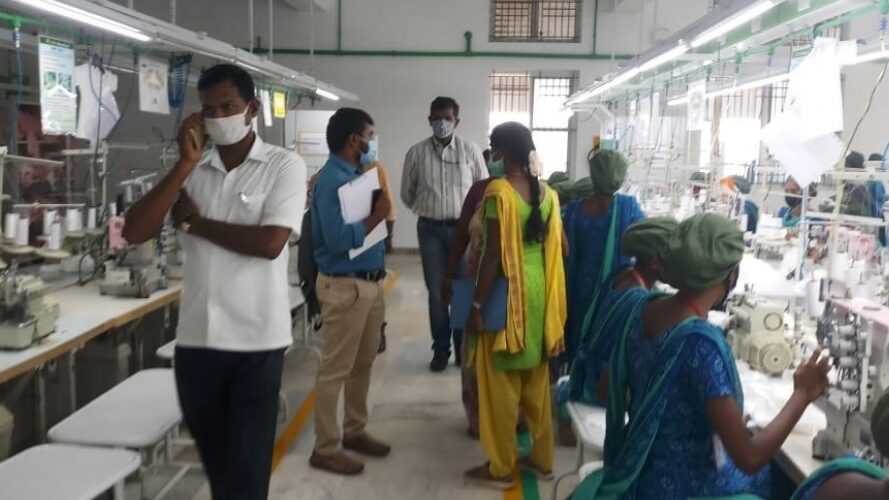COVID Crisis Drives Up Child Labour and Forced Labour in Textiles Industry
Slavery
Recent rescue operations in the booming textiles industry of Tamil Nadu state have brought to light the way business owners are taking advantage of COVID-19 to increase child labour and forced labour for a profit.
Anti-trafficking experts believe this pattern of abuse may be tied to India’s recent migrant crisis: As millions of migrant labourers were forced to move back to their home states during nationwide COVID-19 lockdowns, textile factory owners in southern India seem to have shifted to deception and abuse to keep production running.
“A lot of companies have been recruiting child labourers and young people to work in spinning mills by giving them false promises,” explains IJM’s Clement David. “Since many families find it hard to make ends meet due to the loss of jobs or work opportunities, a lot of them fall prey to these lucrative offers.”
This was the case for a group of 35 teen girls and three young women who became trapped in forced labour at a spinning mill in Tiruppur District this summer.
Seeing that their families were struggling to make ends meet, factory owners offered these young women steady employment until schools reopened. Instead, they were forced to work exhausting 14-hour days without breaks and were trapped inside the factory at all times. They could not contact their parents or, if they got sick, could not see a real doctor—only getting unknown medicines from the factory owners themselves.
Thanks to the advocacy of IJM’s partners Terre Des Hommes CORE, READ and the Campaign Against Child Labor (CACL), the girls and young women were rescued from the factory on July 29 and brought to safety. Read more in The Times of India.
Mr. Chenzhiyan, Director of TDH CORE, said, “If this pandemic continues in our country, this will be the plight of so many of the daily-wage workers and their families. It is time all social activists and workers understand the magnitude of this issue, focus on these communities, and work toward protecting them.”
In recent weeks, IJM and our casework partners have supported rescue operations and surprise sweeps at a spinning mill where minor girls were locked up when police arrived on August 17 (15 were ultimately freed), at a cotton thread factory on August 18 (freeing six people), at a busy garment factory on August 19 (freeing two women and a teen girl).
IJM’s 2014 prevalence study in Tamil Nadu revealed high rates of bonded labour and forced labour in the textiles industry. Yet, investigating individual factories has remained a challenge. Workers’ lives are tightly controlled, and many factory owners use their wealth and connections to evade the law.
Clement adds, “The only way to curb this would be for the government to conduct surprise checks and regular raids to prevent owners from employing child labourers. Also, a comprehensive rehabilitation package for unorganized workers and the vulnerable sector is the need of the hour for families to stop sending their children to work.”